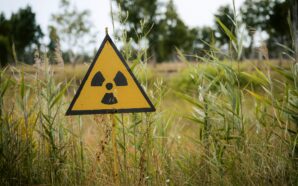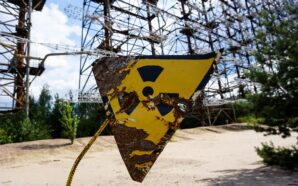Blood clots launch investigation over J&J vaccine
The Johnson & Johnson (J&J) COVID-19 vaccine is under investigation following the reports of rare (potentially dangerous) blood clots with leading pharmaceutical authorities recommending a delay in use. The Food and Drug Administration (FDA) released a joint statement with the U.S. Centers for Disease Control and Prevention (CDC) to “pause” the use of the Johnson & Johnson single-dose vaccine as they review the data of six cases of a severe and rare type of blood clot shortly after receiving the vaccine.
The recommended pause of Johnson & Johnson's vaccine, which makes up less than 5% of the recorded shots in arms in the U.S. to date, was “out of an abundance of caution,” says White House Covid-19 coordinator Jeff Zients https://t.co/IZjVQ8catD
— The Wall Street Journal (@WSJ) April 13, 2021
The six cases occurred among women patients between the ages of 18 and 48 with symptoms occurring 6 to 13 days after vaccination. These occurrences appear to be “extremely rare” while advising recipients of the J&J vaccine who experience symptoms including shortness of breath, severe headache, leg pain, or abdominal pain within three weeks of receiving the vaccine should contact their health care provider.
The White House will also be intervening in the growing issue with the J&J vaccine with the White House COVID-19 coordinator, Jeff Zients, working with federal and state partners to reschedule J&J vaccine patients to receive a Moderna or Pfizer vaccine. Johnson & Johnson disclosed in a statement they are aware of an extremely rare disorder including people with blood clots combined with low platelets in a small group of vaccine recipients.
The Biden administration is working with states to reschedule appointments for individuals who were in line to receive shots of Johnson & Johnson’s COVID-19 vaccine in the coming days. https://t.co/IRDEc9OPxt
— Michael Wilner (@mawilner) April 13, 2021
J&J maintains they’re working closely with health authorities and medical experts while supporting the open communication of this information to the public and health care professionals. J&J will also be reviewing potential cases with European health authorities and committed to proactively delay the rollout of the vaccine in Europe.
The Oxford-AstraZeneca vaccine is also experiencing similar concerns over rare blood clots with vaccines administered through the U.K., European Union (EU), and many other countries. Last week, the EU drug regulator said the benefits of the Oxford-AstraZeneca COVID-19 vaccine outweigh its risks.
Serena Williams Signs Docuseries Deal With Amazon
-
Probe Raises Questions About PSG’s 2017 Deal and Political Involvement. French authorities have launched an investigation into allegations...
-
Cabinet decision shifts frozen tax funds away from Hamas-run Gaza, utilizing Norway as an intermediary. Israel’s cabinet has given...
-
Newly Released Footage Reveals Arrest at Miami Airport Newly released body camera footage reveals the arrest of 73-year-old Donna...
-
Russian Foreign Minister Asserts Moscow’s Stance on Nuclear Arms Control Russian Foreign Minister Sergei Lavrov announced today that Russia...
-
Cross-Border Clashes Escalate Between Pakistan and Iran In a significant escalation of hostilities, Pakistan and Iran have exchanged military...
-
UN Mission Aircraft Taken by Militants After Technical Issue In a concerning development, the al-Qaeda-affiliated group al-Shabab has reportedly...
-
As scrutiny intensifies, Fujitsu faces repercussions for its role in the Post Office scandal. The UK government has issued...
-
Parker Solar Probe to achieve record-breaking proximity to the sun, providing unprecedented insights into solar processes. Since its launch...
-
Pakistan’s Election Commission rejects Imran Khan’s Nominations Pakistan’s Election Commission has rejected former Prime Minister Imran Khan’s nomination to...
-
Residents Urged to Evacuate as Japan Faces Significant Tsunami Threat Following Powerful Quake In the wake of a powerful...
-
Experts to Reveal Latest Assessment of Global Threats The Bulletin of the Atomic Scientists, a nonprofit organization founded in...
-
Summit Focuses on Aid for Ukraine as Internal Divisions Threaten Unified Action European heads of state are set to...



















